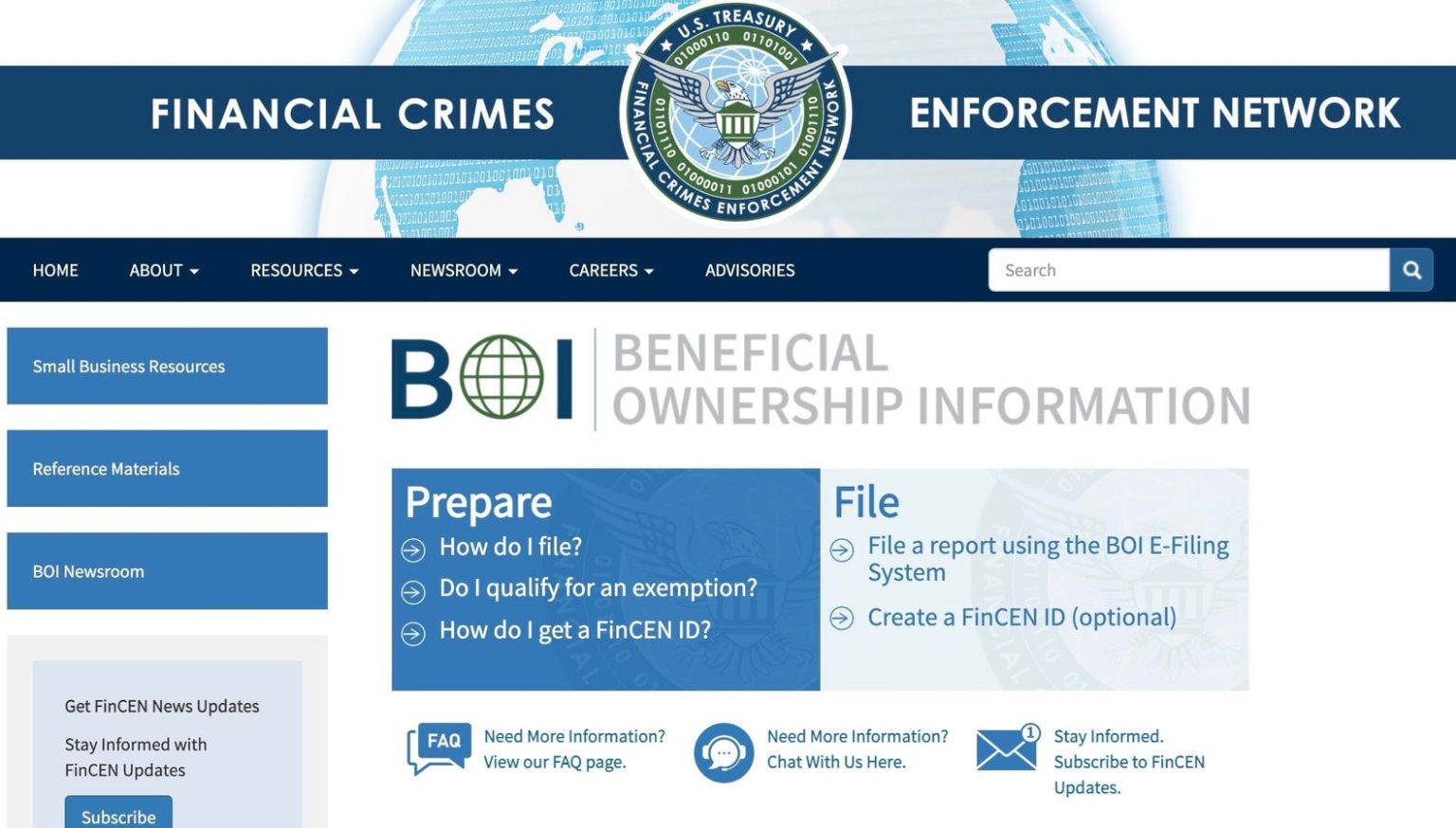Corporate Transparency Act: Navigating the Murky Waters of Beneficial Ownership Reporting
The Corporate Transparency Act (CTA), a cornerstone of the 2020 Anti-Money Laundering Act, has been embroiled in legal battles, causing confusion and uncertainty for business owners regarding their obligation to report beneficial ownership information. Intended to combat money laundering and terrorist financing by shedding light on the true owners of companies, the CTA’s implementation has been anything but straightforward. A series of conflicting court rulings has created a volatile landscape, leaving businesses unsure of their responsibilities and potential penalties.
The initial blow to the CTA came in December 2024 from the District Court for the Eastern District of Texas, which issued an injunction effectively halting the enforcement of the Act. This decision provided temporary relief for businesses concerned about compliance. However, the respite was short-lived. The U.S. Court of Appeals for the Fifth Circuit quickly intervened, issuing a stay on the injunction and seemingly reviving the CTA’s reporting requirements. The Financial Crimes Enforcement Network (FinCEN), the agency responsible for implementing the CTA, set a January 13, 2025 deadline for businesses to submit their beneficial ownership information reports (BOIRs).
This back-and-forth continued as the full Fifth Circuit Court subsequently reversed the panel’s decision, once again nullifying the reporting deadline and plunging the CTA’s future into uncertainty. The legal tug-of-war has left business owners in a precarious position, grappling with the question of whether to comply with a law currently in legal limbo. This uncertainty underscores the complexities and challenges surrounding the implementation of the CTA.
Despite the ongoing legal challenges, understanding the core components of the CTA and the BOIR requirements remains crucial. The CTA mandates that certain businesses disclose their beneficial owners – individuals who ultimately own or control the company, even if not listed as the official owner. This transparency aims to prevent the misuse of corporate structures for illicit activities. The required information includes the business’ legal name, address, tax identification number, and details about each beneficial owner, such as their name, date of birth, address, and identification number.
FinCEN has established a free online platform, the BOI E-Filing System, to facilitate the reporting process. While the current legal status of the CTA does not mandate immediate compliance, businesses can choose to proactively file their BOIRs. This proactive approach may offer several advantages, including ensuring preparedness for any future rulings that reinstate the reporting requirements and avoiding the potential rush and complexities associated with last-minute compliance.
The decision to file a BOIR ultimately rests with each business owner. While the legal battles continue, weighing the potential risks and benefits of early compliance is essential. Proactive reporting could provide peace of mind and demonstrate a commitment to transparency, while waiting for a final legal resolution carries the risk of potential penalties if the CTA is ultimately upheld. Staying informed about the evolving legal landscape surrounding the CTA is paramount for businesses navigating this complex and uncertain terrain.
The CTA aims to enhance transparency and combat financial crimes by requiring businesses to disclose their beneficial owners. However, the Act’s implementation has been plagued by legal challenges, creating confusion and uncertainty for businesses. The series of conflicting court rulings has left the reporting requirements in a state of flux, posing a dilemma for businesses attempting to navigate the complexities of the law.
Despite the ongoing legal battles, understanding the basics of the CTA and the BOIR process is crucial for businesses. The CTA seeks to uncover the individuals who ultimately control companies, even if they are not listed as official owners. This information is deemed essential for preventing the misuse of corporate entities for illegal purposes. The BOIR requires businesses to provide specific details about themselves and their beneficial owners, including names, addresses, identification numbers, and other relevant information.
FinCEN’s online platform, the BOI E-Filing System, simplifies the reporting process, making it relatively straightforward for businesses to submit their information. Although the current legal status does not mandate immediate compliance, businesses retain the option to file their BOIRs proactively. This proactive approach may offer several advantages, such as being prepared for any future rulings that reinstate the reporting requirements and avoiding the potential complexities of last-minute compliance.
The decision to file a BOIR remains at the discretion of each business owner. However, while the legal challenges persist, carefully considering the potential risks and benefits of early compliance is crucial. Proactive reporting can provide peace of mind and demonstrate a commitment to transparency, while waiting for a final legal resolution carries the risk of potential penalties if the CTA is ultimately upheld. Remaining informed about the ongoing legal developments surrounding the CTA is paramount for businesses seeking to navigate this intricate and uncertain landscape.


